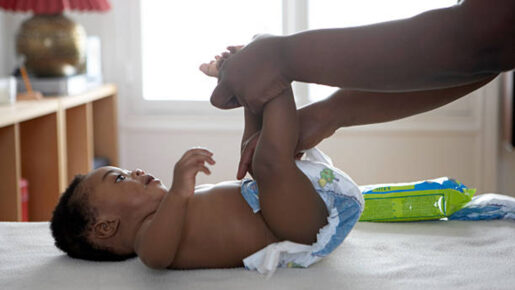A medical professional, Dr. Gbenga Adebusoye, has emphasized that delaying the changing of children’s soiled diapers and napkins can heighten their susceptibility to Urinary Tract Infection (UTI).
Dr. Adebusoye, speaking in an interview with the News Agency of Nigeria (NAN) in Jos, underscored that the prolonged use of dirty diapers or napkins increases the risk of bacterial infiltration into the urinary tract, leading to UTI.
He described UTI as an infection that affects the urinary tract, comprising the upper and lower urinary tract. The upper tract involves the kidneys and ureters, while the lower tract includes the bladder and urethra.
Dr. Adebusoye highlighted the anatomical differences between males and females, noting that females are more vulnerable to UTI due to the shorter length of their urethra, facilitating quicker microbial ascent from the anus to the bladder. Thus, thorough cleaning of the perineum and anus, especially in females, is crucial to prevent contamination.
Moreover, he cautioned against delaying urination in children, as stagnant urine provides an environment for bacterial proliferation in the bladder, leading to UTI. Infants not receiving adequate breastmilk are also at higher risk due to the lack of antibodies present in breast milk that help protect against UTI.
Various factors, including family history, chronic illnesses, constipation, anatomical abnormalities, and sexual abuse, can predispose children to UTI, Dr. Adebusoye added. Recognizable symptoms of UTI in children include fever, pain or discomfort during urination, frequent urination, foul-smelling urine, blood in the urine, abdominal or back pain.
He advised seeking medical attention promptly if a child exhibits any of these symptoms. Dr. Adebusoye urged parents and caregivers to prioritize timely diaper changes and maintain good hygiene practices. Teachers were encouraged to facilitate restroom breaks for children during school hours.

Diaper
Furthermore, he emphasized the importance of breastfeeding and adequate hydration to reduce the risk of UTI. In conclusion, Dr. Adebusoye emphasized the significance of proactive measures in safeguarding children’s urinary health.

